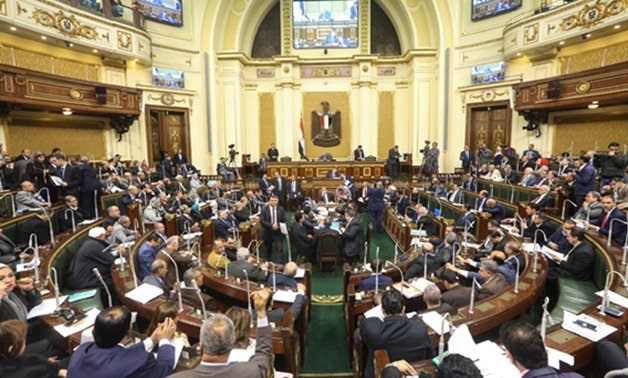
FILE - Egyptian parliamentarians hold talks
CAIRO – 17 April 2018: Parliament’s Communications and Information Technology Committee approved the draft cybercrime law on Monday, which aims to pose surveillance on social media and limit the spread of fake news, particularly those that incite violence.
MP Nedal al-Saeed, head of the committee, said that his committee will submit a report about the cybercrime law to Parliament Speaker Ali Abdul Aal to be discussed during the plenary session.
In an interview with Egypt Today, MP John Talaat, deputy head of the committee, said that the law would combat hackers, fake emails and credit card theft.
 FILE - MP John Talaat
FILE - MP John Talaat
When asked about how the law helps fight terrorism, Talaat did not answer specifically. However, he said that if a website published content that violates the cybercrime law, then those responsible for the violation would be judged and the website would be banned if the violation was repeated.
In May 2017, Egyptian authorities decided to ban 21 news websites, including HuffPost Arabi, Qatari-based Al-Jazeera and Masr al-Arabiya, for "supporting terrorism and publishing fake news."
On Wednesday, the Cabinet referred the draft cybercrime law to Parliament to be discussed, as the law has an indispensable role in dealing with rumors that are not easily monitored on social media.
The punishments set forth in the draft law range from a month in prison to the death penalty, should, in the latter case, the cybercrime result in the death of someone or is considered a threat to national security. The law also stipulates other penalties, including blocking sites and canceling their licenses.
Several members of Parliament called for accelerating the approval of the draft law, as it is deemed essential to combating cybercrime, as an Interior Ministry official told the news agency MENA in December2016. The official said that “1,045 Facebook pages were shut down in 2016 for inciting violence against police and army officers, and calling for marches and blocking roads."
On the other hand, the Committee to Protect Journalists (CPJ) previously considered the cybercrime bill as a restriction of freedom of expression, which is a basic right in a democratic society. They said that the Egyptian authorities have been blocking hundreds of websites on claims that they “support terrorism”.

Comments
Leave a Comment